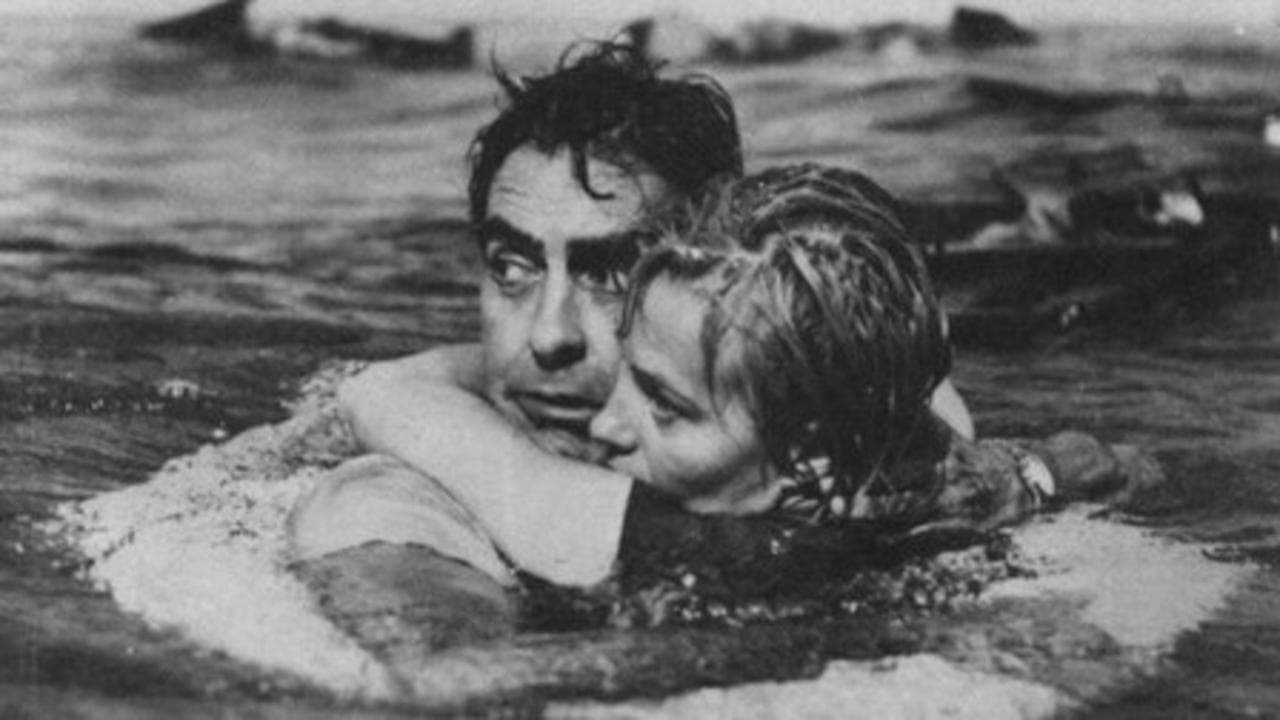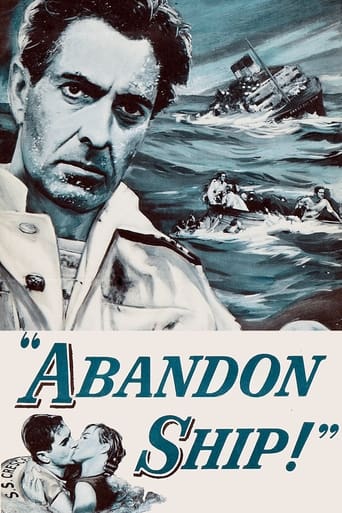



Very well executed
Perfect cast and a good story
One of the best films i have seen
A movie that not only functions as a solid scarefest but a razor-sharp satire.
View MoreMost excellent entertaining movie bringing us a cross section of life and real life situations with human nature at work. Some very difficult decisions have to be made in this movie by everyone involved. We are reminded that when not challenged, your opinion or belief just sits there. You may or may not ever know if it bears fruit. But when summoned into action, the we find out what works and what doesn't sometimes much to our own disbelief too. In this movie, the players and even the viewer is forced to confront themselves. Is what we are seeing acted out real and is it plausible? Yes, frighteningly so. Should we all die unnecessary deaths or should some live for the right reasons. What makes you more attractive to "live" and contribute than let's say the other guy? Strangely enough, it is not being judgmental when you see the other persons abilities or lack thereof. Observing what will or wont work is raw reality and then acting on it is raw courage. That is what you will find here. Sometimes the majority is wrong and the minority unsure, but going along to get along is not an option. This movie presents and proves that point. The stage is set well in the beginning and then leads to a point where it roller coasters...then hold on..Popcorm recommended, I roast fresh sunflower seeds and chomp away....Enjoy and do spread the word and may all your decisions be your own
View MoreA case study in raw utilitarianism -- "the greatest good for the greatest number." A cruise ship explodes at sea and there are twenty-six survivors who find themselves in, or clinging to, a small boat with minimal provisions, designed to carry only nine passengers.No distress call was sent out and the boat is adrift in the south Atlantic, fifteen hundred miles from the nearest coast. The captain is aboard the boat but promptly dies, leaving another officer, Tyrone Power, in command.Well, Power has inherited a mess. The ship had hit a derelict mine that exploded under the keel, killing almost all the other passengers. Some of the survivors are injured or otherwise weakened by age or illness. The engineer, Lloyd Nolan, is mortally wounded. With his last breath he urges Power to get rid of the detritus and keep only the strong aboard, who might have a chance if they row for Africa. Noland dives overboard and drowns himself. Power broods and decides in the end that Nolan was right. There are too many passengers and he decides to abandon the weak.Nobody is particularly happy about this sort of Darwinism at sea, especially the weak and injured. As is usually the case, everyone wants the greatest good for the greatest number, but everyone wants to be among the greatest number, not the smaller one. At gunpoint, Power orders a half dozen injured passengers overboard to be left behind -- also one effete playwright and his French poodle. There goes the opera singer, then the nuclear physicist. For some strange reason, a beautiful and sarcastic blond who is in her underwear is kept aboard. She can probably row or at least tell funny stories.Thus lightened, the little boat manages to survive a terrific storm that night. The next day, everyone is grateful to Tyrone Power for having had the courage to dispose of some of the jetsam. A spokesman for the survivors begins to make a formal speech of gratitude to the now-wounded Power. But he's interrupted by the arrival of a freighter that rescues them. The survivors then move away from Power and sit with their backs to him. According to the epilogue, Power was charged with murder and given the minimal sentence.One of the first things a viewer might notice about the film is that it's so disjointed that it must be "based on a true story." Else why does Power first climb aboard a raft with four others, then leave them and swim to the distant boat. What became of the raft and the people on it? Why is the raft and its passengers IN the movie if it hadn't happened to be there in historic reality? Second, wow, what a lot of familiar faces are in this boat. Not just Power and Nolan, but a lot of British actors and actresses whose faces will be familiar, if not their names.Third, in certain very general ways the film resembles Hitchcock's "Lifeboat" but is far cruder in its execution. No time here for a semi-comic romance between a communist stoker and a rich socialite. This is all grim, tense, and moves inexorably towards its ambiguous and arguable end. Anyone who finds this story as involving as I do might want to watch Michael Sandel's lecture on The Queen vs. Dudley and Stevens (1884), a case of cannibalism at sea. Can I include a link here? http://www.justiceharvard.org/2011/03/episode-01/#watch And it IS a gripping story. Tossing a dignified old opera diva overboard or a fairy playwright is one thing -- but a dog? "They'll be in the hands of God," says Power, but of course it's his hands that are putting them there. There isn't much room for character or development and, as I say, the movie rushes like an express train along its moral path. There is a black crew member aboard and, though he does get to sing a "Negro spiritual," at least he's a complaining pain in the neck most of the time. Power undergoes one transformation -- from not knowing what to do, to a solemn and unbreakable determination to save most of the passengers at the expense of a few of them. If there's a problem with that transformation it's that after it takes place Power seems to ENJOY his authority over the lives of others. The guy is pitiless. But it's hard to condemn him out of hand. I don't know what I'd have done -- probably melted away under the stress. What would anyone do? I honestly recommend catching Sandel's free lecture, which is anything but intimidating.
View MoreIn 1946 Tyrone Power managed to start convincing his friend and producer, Darryl Zanuck, to occasionally let him flex his muscles as a straight, serious actor. Zanuck reluctantly agreed, so that Power did THE RAZOR'S EDGE and (more important) NIGHTMARE ALLEY. In the former he struggled to show a man who sought and found spiritual piece in the years following World War I, while his friends went mad in the materialistic hopelessness of Europe and America. In the latter he showed he could play a really nasty, opportunistic heel. But neither film was a blockbuster for Power (THE RAZOR'S EDGE did help push the career of his co-star Clifton Webb). NIGHTMARE ALLEY was a critical success, but a flop at the box office. Zanuck returned Power to his old heroic films, aged a little because he was growing older. As a partial sop his characters had less pleasant sides - his character in PRINCE OF FOXES is a willing tool of Cesare Borgia (Orson Welles) for the first half of the movie. But Power remained the good guy hero.In the 1950s (after his contract with Fox was completed) Power made more varied films, that showcased the good actor he had become. In particular his tragic biography THE EDDIE DUCHIN STORY, his interesting western RAWHIDE, his shifty defendant in WITNESS FOR THE PROSECUTION, his physically damaged (and emotionally wounded) hero in THE SUN ALSO RISES, and this film, ABANDON SHIP/SEVEN WAVES AWAY. The story is reset in modern times. It is the story of the sinking, in 1841, of the William Brown - the same shipwreck that is the subject of Henry Hathaway's movie SOULS AT SEA (1937) that starred Gary Cooper, George Raft, and Henry Wilcoxen. Basically the situation is this: you are in the sole floating lifeboat from a ship that has sunk. There are fifty people clinging to it or inside it. But the frail boat can only be assured of floating with twenty or so passengers in it. So, as the surviving officer in the boat you have to decide who shall live and who shall die. Cooper had to make that choice in SOULS AT SEA, and faces trial for murder as a result. Power does the same thing here too - with similar results.But the handling of the William Brown tragedy in SOULS AT SEA was the conclusion of that film: The situation and it's resolution took all of ten minutes of the total movie. In ABANDON SHIP, Power is in this dreadful moral dilemma for the entire film. The Captain (Lloyd Nolan) dies early on. Power has to pick and choose among all these few survivors as to who should be kept and who is expendable (based on age, physical condition, value to society). He is unable to rely on anyone else - a fact that is brought to his attention not only by the actions of a critical Stephen Boyd at one point, but by the way Mai Zetterling and James Hayter distance themselves from him when the lifeboat is finally picked up. All powerful in his unwanted element while everyone's lives depended on him, he is all alone when the dangers for the survivors pass away.ABANDON SHIP is a hard film to sit through as it is so bleak - it is the bleakest movie that Powell ever made (even THE EDDIE DUCHIN STORY had an element of hope in it because Eddie's son Peter was there to carry on the family's name and reputation). But it is an example of good acting all around with a thoughtful script. And it demonstrates that Tyrone Power was a mighty dramatic performer when he was given the right material.
View MoreThis copycat film was not nearly as compelling as the late '40's film Lifeboat, the best post WWII lifeboat film. Both shared similar story lines, but Lifeboat had better actors and more interesting story twists.See Lifeboat instead. Much better cast and more subtle and effective acting than with the over-the-top, chew-the-scenery overacting from Tyrone Power. Lifeboat also had a good and sympathetic-til-the-end, rescued German sailer subplot that was effective in pulling our heartstrings until we saw that often things are not what they appear to be. They are often worse.
View More